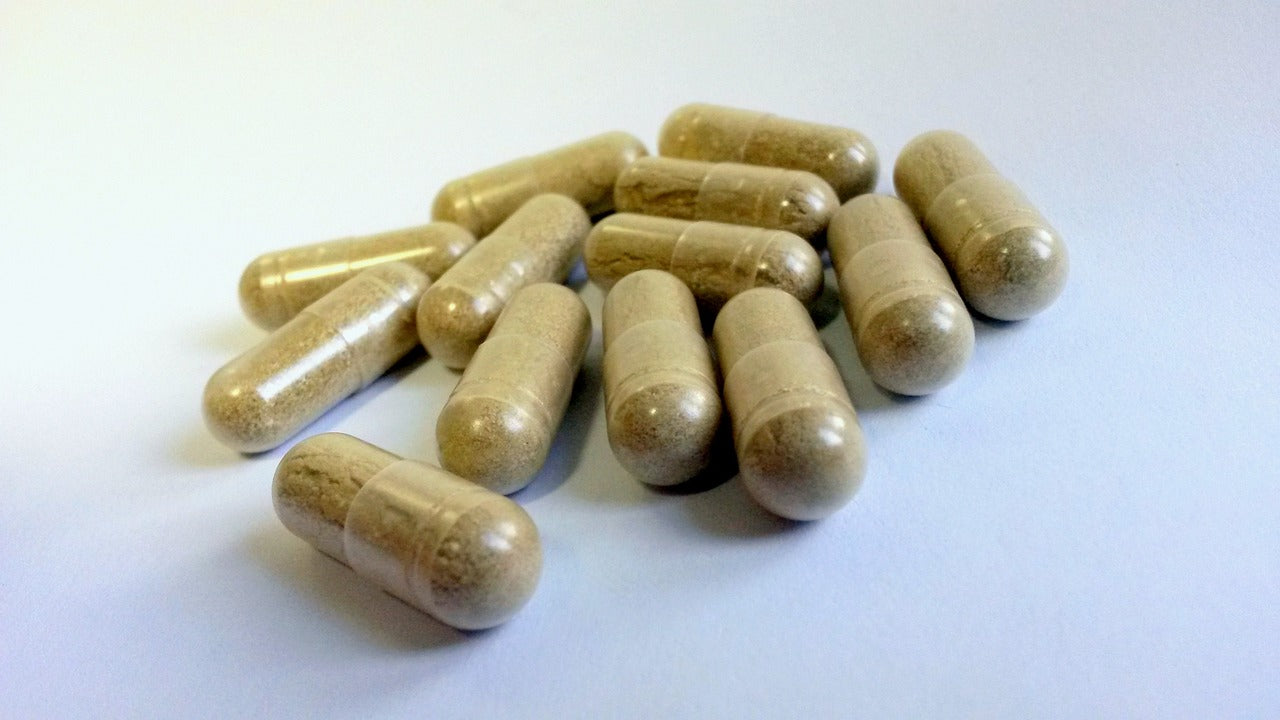Are you looking for a natural way to enhance your health and vitality? Look no further than DHEA, a powerful hormone produced by your body's adrenal glands. In this article, we will explore the numerous benefits of DHEA and how it can help unlock your potential for a healthier and more vibrant life.
DHEA, or dehydroepiandrosterone, plays a crucial role in regulating various bodily functions, including hormone production, metabolism, and immune response. As we age, our DHEA levels naturally decline, leading to a range of health issues. However, by supplementing with DHEA, you can potentially boost your energy, reduce stress, improve mood, and even enhance cognitive function.
But that's not all – studies have also shown that DHEA may have anti-aging properties and can help support bone health, muscle mass, and cardiovascular health. With its wide range of benefits, DHEA has gained popularity as a natural and safe way to promote overall well-being.
Intrigued? Read on to delve into the world of DHEA and discover how this incredible hormone can unlock your potential for health and vitality.
What Is DHEA and How Does It Work?
The Mother Hormone: What Is DHEA?
DHEA (dehydroepiandrosterone) is a naturally occurring steroid hormone produced primarily in the adrenal glands, which are located just above the kidneys. Often referred to as the “mother hormone,” DHEA acts as a precursor to both testosterone and estrogen, making it vital for maintaining hormonal balance and supporting numerous physiological processes in the body.
DHEA is synthesized from cholesterol and released into the bloodstream, where it is converted by tissues into other essential hormones. These hormones regulate everything from metabolism and immune function to mood, cognitive health, and sexual vitality.
DHEA Decline With Age
DHEA production peaks in your mid-20s and steadily declines as you age. By the time most individuals reach their 70s or 80s, DHEA levels can fall to just 10–20% of their youthful peak.
This age-related decline in DHEA is associated with:
-
Decreased energy and stamina
-
Loss of muscle mass and strength
-
Reduced libido
-
Impaired cognitive performance
-
Weakened immune response
Maintaining or restoring optimal DHEA levels through lifestyle strategies or supplementation may help support longevity, vitality, and performance—especially in aging populations.
📚 Reference: Labrie et al., 2005 – J Endocrinol
How DHEA Works: Key Mechanisms
DHEA impacts a variety of systems through multiple mechanisms:
1. Hormone Precursor
DHEA is converted into:
-
Androgens (including testosterone)
-
Estrogens (including estradiol)
This conversion helps regulate reproductive health, sexual function, bone density, and muscle mass.
2. Modulates Cortisol and Stress Response
DHEA plays a counter-regulatory role in balancing cortisol, the stress hormone. High cortisol levels from chronic stress can lead to fatigue, weight gain, and hormone imbalance. Maintaining healthy DHEA levels may help buffer these effects.
3. Supports Brain and Cognitive Health
DHEA enhances the production of neurotransmitters such as dopamine and serotonin, supporting mood, memory, and mental clarity.
4. Immune System and Anti-Inflammatory Support
DHEA exhibits anti-inflammatory properties and supports immune system modulation, making it potentially protective against age-related chronic conditions.
📚 Reference: Straub, 2007 – Annals of the NY Academy of Sciences
The Role of DHEA in Hormonal Balance
DHEA as a Regulator of Testosterone and Estrogen
One of the most important functions of DHEA is its ability to influence hormone levels by serving as a precursor to sex hormones. When DHEA is balanced, it supports optimal levels of:
-
Testosterone in men – Promoting muscle maintenance, sexual health, and energy
-
Estrogen in women – Supporting menstrual health, mood stability, and bone density
Symptoms of Low DHEA May Include:
-
Fatigue and low energy
-
Mood swings or depressive symptoms
-
Low libido or sexual dysfunction
-
Decreased muscle tone and strength
-
Poor stress resilience and elevated cortisol
📚 Reference: Morales et al., 1998 – J Clin Endocrinol Metab
DHEA and Cortisol: Managing the Stress Axis
Chronic stress leads to elevated cortisol, which can suppress testosterone, disrupt sleep, and impair mental performance. DHEA helps to restore balance by counteracting excessive cortisol levels, supporting a healthy hypothalamic-pituitary-adrenal (HPA) axis.
✅ A balanced cortisol-to-DHEA ratio is critical for:
-
Stress resilience
-
Hormonal equilibrium
-
Inflammation control
-
Metabolic regulation
📚 Reference: Wolf et al., 1997 – Neuropsychopharmacology
Health Benefits of DHEA Supplementation
Why Supplement with DHEA?
As natural DHEA production declines with age, many individuals seek ways to restore vitality, support hormonal balance, and optimize their overall health. DHEA supplementation has gained attention for its broad spectrum of health benefits—ranging from energy and mood enhancement to muscle building, bone support, and cognitive performance.
Let’s explore the diverse ways DHEA supplementation may contribute to a healthier, more balanced life.
1. DHEA for Energy and Vitality
One of the most commonly reported benefits of DHEA supplementation is a boost in energy. As DHEA levels drop, individuals often experience:
-
Fatigue
-
Low motivation
-
Decreased physical activity
By restoring DHEA to optimal levels, many users report enhanced stamina, greater enthusiasm for daily activities, and improved exercise capacity.
📚 Reference: Baulieu et al., 2000 – PNAS
2. DHEA and Mood Support
DHEA influences neurotransmitters like dopamine and serotonin, which are key players in mood regulation. Supplementing DHEA has been associated with:
-
Decreased symptoms of depression and anxiety
-
Enhanced emotional stability
-
Improved stress resilience
These effects make DHEA a compelling option for those seeking natural mood support without relying exclusively on pharmaceutical interventions.
📚 Reference: Wolkowitz et al., 1999 – Biological Psychiatry
3. DHEA for Muscle Mass and Strength
DHEA supports muscle protein synthesis, helping to counteract age-related muscle loss (sarcopenia). For aging individuals or those undergoing body recomposition, DHEA may:
-
Increase lean body mass
-
Improve muscle strength
-
Support recovery from resistance training
📚 Reference: Morales et al., 1998 – JCEM
DHEA and Its Impact on Aging
4. DHEA and Bone Health
DHEA may help maintain bone mineral density, especially in postmenopausal women who are at a higher risk for bone loss.
How it works:
-
DHEA converts into estrogen and testosterone, both of which support bone preservation
-
Stimulates osteoblast activity, promoting new bone formation
-
Reduces the risk of osteoporosis and fractures
📚 Reference: Villareal et al., 2000 – NEJM
5. DHEA and Cardiovascular Health
DHEA has been linked to improved heart health in aging populations.
Potential cardiovascular benefits include:
-
Supporting healthy cholesterol levels
-
Enhancing endothelial function
-
Lowering inflammation and oxidative stress
Studies show that individuals with higher DHEA-S levels have a lower risk of cardiovascular disease, particularly in older adults.
📚 Reference: Shufelt et al., 2010 – Maturitas
6. DHEA and Cognitive Function
DHEA may support brain health and help guard against age-related cognitive decline. Benefits include:
-
Improved memory and attention
-
Enhanced processing speed and executive function
-
Potential protection against neurodegenerative conditions such as Alzheimer’s
📚 Reference: Wolf et al., 1997 – Neuropsychopharmacology
DHEA and Mental Health
7. Enhancing Emotional Well-Being
DHEA supplementation has shown promise in:
-
Reducing symptoms of mild to moderate depression
-
Lowering anxiety levels
-
Promoting positive emotional responses during stress
Its effect on HPA axis modulation (the stress-regulating system) may help regulate cortisol levels and support mental resilience.
📚 Reference: Schmidt et al., 2005 – Archives of General Psychiatry
DHEA and Weight Management
8. Improving Body Composition and Fat Metabolism
DHEA may support healthy weight management through several mechanisms:
-
Increasing lean muscle mass → boosts metabolic rate
-
Enhancing insulin sensitivity
-
Improving glucose metabolism
-
Supporting hormonal balance to regulate appetite
📚 Reference: Yen et al., 1995 – J Clin Endocrinol Metab
✅ Especially beneficial for individuals with metabolic syndrome or age-related weight gain
DHEA and Bone Health
Bone integrity becomes more critical with age, and DHEA offers unique support through both direct and indirect mechanisms.
How DHEA Supports Bones:
-
Converts into estrogen/testosterone, crucial for bone preservation
-
Stimulates osteoblasts (bone-building cells)
-
Reduces bone resorption
📚 Reference: Davis et al., 1999 – JCEM
✅ Especially valuable for postmenopausal women and older men at risk of osteopenia or osteoporosis.
DHEA Dosage and Safety Considerations
Recommended Dosage
Typical doses range from:
-
Men: 50–100 mg per day
-
Women: 25–50 mg per day
📌 Always start with the lowest effective dose and adjust based on goals and lab values.
Monitoring and Safety
DHEA is generally well-tolerated, but excessive intake can cause side effects:
-
Acne or oily skin
-
Hair thinning (in women)
-
Mood changes or irritability
-
Hormonal imbalances if used long-term
Consult with a healthcare provider and conduct regular hormone panels (e.g. DHEA-S, testosterone, estradiol) to ensure safe usage.
📚 Reference: Mayo Clinic – DHEA Overview
Conclusion: Unlocking the Power of DHEA for Lifelong Vitality
DHEA is more than just a hormone—it's a cornerstone of vitality. As a natural precursor to testosterone and estrogen, DHEA plays a pivotal role in maintaining hormonal balance, supporting mood, boosting energy, and protecting against age-related decline in bone, muscle, and cognitive function.
As DHEA levels naturally decrease with age, targeted supplementation offers a promising, science-backed strategy to restore balance, improve quality of life, and promote longevity. From better body composition to enhanced mental clarity and emotional well-being, the benefits of DHEA are both diverse and compelling.
That said, DHEA isn’t a one-size-fits-all solution. Supplementation should always be personalized, with guidance from a healthcare professional and regular hormone monitoring to ensure optimal results and long-term safety.
By understanding your body’s hormonal needs and taking proactive steps—like supplementing with DHEA when appropriate—you can unlock a new level of health, vitality, and performance at any age.
Ready to explore DHEA further? Let’s build a custom hormone support stack or educational guide tailored to your wellness goals.







